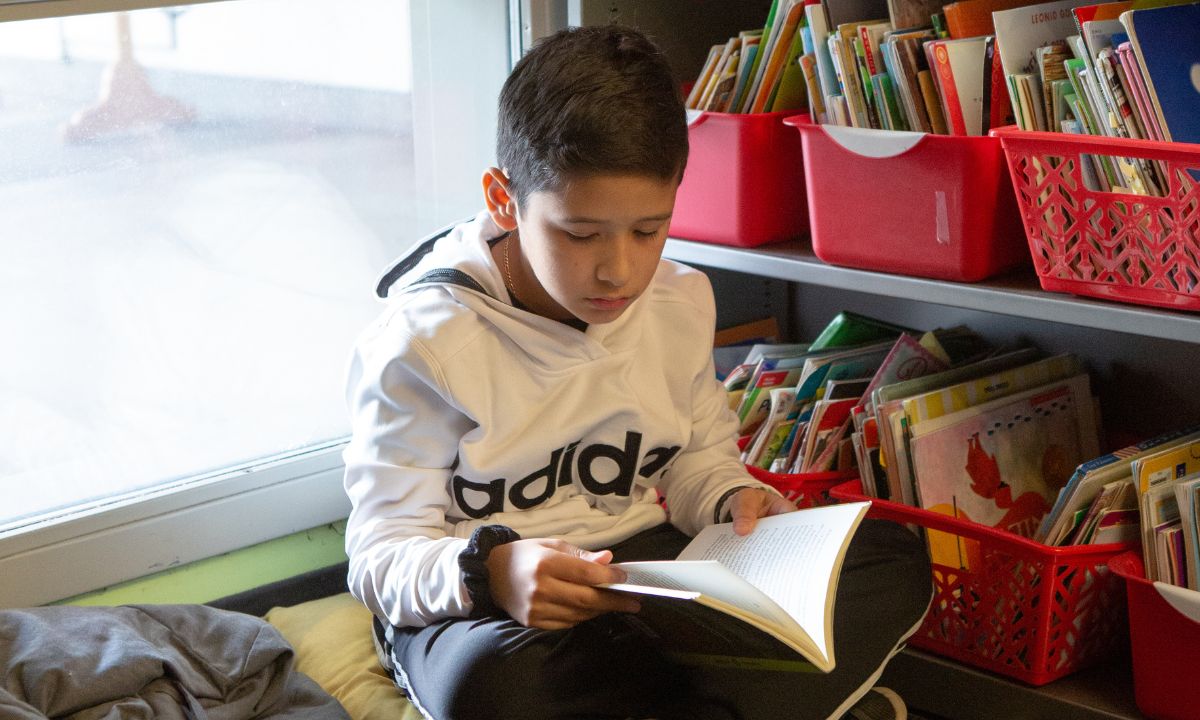New Study: Holding Kids Back One Key Factor in Mississippi’s Reading Revolution
Burk & Wright: While there should be exemptions, retention in 3rd grade has a far greater positive impact than moving along a student who isn’t ready

Get stories like this delivered straight to your inbox. Sign up for The 74 Newsletter
Nearly a quarter of the way into the 21st century, the way children are taught is still evolving to keep pace with a world that seems to change every day.
While education has made great gains in so many areas, progress remains impeded by old, disproven misconceptions, especially when it comes to one of the most essential, fundamental skills: the ability to read.
A report released last week by ExcelinEd and Wheelock Educational Policy Center at Boston University should end the debate over the value of holding back students who are not reading at grade level by the end of third grade.
This study reinforces what teachers and families already know: If early intervention and support for struggling readers are not enough for a child to read at grade level before fourth grade, providing more time in third grade dramatically increases their odds of succeeding in school and in life.
We were both fortunate to be part of a reading revolution in Mississippi. After decades of ranking near the bottom nationally in reading scores, Mississippi passed the Literacy-Based Promotion Act in 2013.
Six years later, the 2019 National Assessment of Educational Progress results demonstrated the impact of this comprehensive policy. During those six years, fourth graders showed a gain of 10 points — the equivalent of an entire grade level — on the NAEP reading exam. Mississippi was the only state in the entire nation to show reading gains that year.
Any successful recipe has several complementary ingredients, and it is no different for Mississippi’s reading policies. Making sure that teachers are trained in the science of reading is critical, as are early screening and intervention for the youngest students and dedicated reading coaches in schools. The curriculum must be phonics-based, and families must be included every step of the way.
But like any recipe, removing or diluting just one ingredient can affect everything.
Many states that have posted reading gains, including Mississippi, provide students with additional time in third grade if assessments show they are not ready to read at a higher level.
Third grade retention is a last resort if years of intervention and support have not been enough. Why third grade? Because studies have made it clear that students who are not reading at grade level when they enter fourth grade are not prepared for a critical transition — reading to learn — and have dramatically lower odds of succeeding in school or even graduating.
While there should be exemptions for some students, including English learners, and opportunities to move on to the fourth grade by retaking assessments, teachers and families involved in a child’s early and formative years understand that retention will have a far greater positive impact than moving along a student who just isn’t ready.
But anecdotal evidence is not enough to build education policy on. A new study by the Wheelock Educational Policy Center highlights the benefits of ensuring children enter fourth grade only when they are prepared. The research focused on students who scored within 20 points of the passing threshold in the third grade. By the time they were in sixth grade, these students on average scored in the 20th percentile for English language arts. But those who were retained in third grade scored on average around the 62nd percentile when they were in sixth grade.
Clearly, ELA scores for students who were retained In Mississippi were substantially higher than for comparable children who were just barely promoted, especially among Black and Hispanic kids.
And, contrary to misconceptions, there was no impact on attendance in sixth grade or on other outcomes, including being identified for special education.
“Mississippi’s test-based promotion policy led to substantial and sustained improvement in literacy outcomes for Mississippi students who repeated the third grade in 2015-16,” the report concludes. “The positive magnitude of this finding is very large and, given similar results in other contexts, suggests that this may be a policy intervention other states should consider.”
Last year’s NAEP results were a dramatic call to action with decades of reading gains erased after the upheaval of the pandemic. Nationally, student reading performance is at its lowest since the 1990s, with a third of students in fourth and eighth grade not reading at grade level.
And while reading scores also dropped slightly in Mississippi, our state remained above the national average — a further testament to not just our policies, but also the dedicated teachers and families making those policies work.
Success is never final, and we know that our friends and neighbors in Mississippi and the rest of the nation all want the best for each child and student.
It is time for every state to follow the evidence. That means focusing on prevention and intervention, but also considering the full suite of proven reading policies — including retention — to ensure the youngest readers have the opportunity to learn and thrive throughout school and for the rest of their lives.
Get stories like these delivered straight to your inbox. Sign up for The 74 Newsletter

;)

